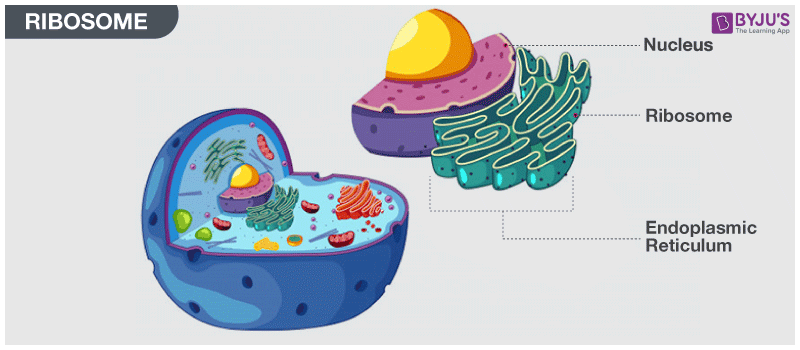What are Ribosomes?
Ribosomes are a compact, molecular cellular organelle found inside living cells. This cell organelle is mainly involved in the synthesis of proteins and the process is called protein synthesis or translation. In this process, proteins are produced with the help of amino acids. The synthesis of protein is a fundamental and essential function performed by all living cells.
Every single cell requires ribosomes to manufacture proteins, therefore, ribosomes are called specialized cell organelles.
Read more about- Ribosomes
Ribosomes are the only cell organelles which can synthesize proteins and are widely used in the production of antibiotic drugs. Let’s learn some more interesting facts about ribosomes.
There are various interesting and amazing facts about ribosomes. A very few of them are discussed below point-wise.
Amazing Facts about Ribosomes

Fact- No-1
Ribosomes are very important cell organelles that are tasked with synthesizing proteins, therefore they are known as the protein factory of the cell.
Fact- No-2
In the ribosome, the word “rib” is derived from ribonucleic acid (RNA) which provides the instructions on making proteins.
Fact- No-3
There are two different types of ribosomes including- the 70s, which are found only in the prokaryotic cells and 80s, found only in the eukaryotic cells.
Also Read: Difference Between the 70S and 80S Ribosomes
Fact- No-4
Ribosomes are present in great numbers. More than thousands of ribosomes can be found in a single bacterial cell. Whereas, in complex organisms such as humans, plants and animals, a single cell can have around hundreds of thousands of Ribosomes. In some rare cases, the numbers may also vary from hundreds to millions of Ribosomes.
Fact- No-5
Ribosomes are the organelles that help in protein synthesis. Protein, the building blocks, is required for many cellular activities such as damage repair and other chemical processes.
Fact- No-6
The ribosome has a specialized structure, which is fundamentally a complex of ribonucleoprotein or RNA-protein. The size of the ribosome varies between 20 and 30 nanometres.
Fact- No-7
Prokaryotic ribosomes include three separate rRNA molecules with small ribosomal subunit – 70s. The eukaryotic ribosomes comprise four separate rRNA molecules along with the large ribosomal subunit -80s.
Fact- No-8
Ribosomes are the cell organelles, which are present inside a cell and have their predefined functions, such as protein synthesis and other cellular activities.
Fact- No-9
Ribosomes are present in every single living cell on this planet. These cell organelles are found both in the eukaryotic and prokaryotic cells, including in the animal cell, plant cell and also in the human blood cells.
Also Refer: Difference between Prokaryotic and Eukaryotic Cells
Fact- No-10
Ribosomes are different from other cell organelles, as they are not surrounded by a protective membrane but are found scattered within the cytoplasm.
Fact- No-11
The ribosomes were discovered by American cell biologists Christian de Duve, Albert Claude and George Emil Palade in the year 1974.
Fact- No-12
In all living cells, one type of ribosome is found freely, floating within the cytoplasm. In addition, another type of ribosome is found attached to the endoplasmic reticulum.
Fact- No-13
The eukaryotic ribosomes.i.e the 80s ribosomes are found in the cytoplasm, either bounded by a membrane or found floating freely. These types of ribosomes are quite larger than the 70s ribosomes.
Fact- No-14
The ribosomal subunits in the cytoplasm are bound around mRNA polymers. The tRNA then synthesizes proteins.
Fact- No-15
The different components of ribosomes can be easily distinguished by their colour. These types of ribosomes can be easily distinguished by their binding to the specific ribo-proteins.
Also Refer Facts about Animal Cell.
These were a few interesting and amazing facts about ribosomes. To know more about ribosomes, their structure, functions, other related topics and important questions, keep visiting our website at BYJU’S Biology.


Comments